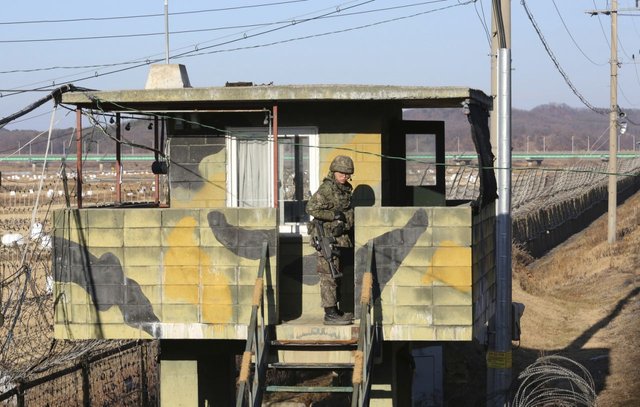N. Korea says it's a 'pipe dream' that it will give up nukes

SEOUL, South Korea (AP) — North Korea said it is a "pipe dream" for the United States to think it will give up its nuclear weapons, and called the latest U.N. sanctions to target the country "an act of war" that violates its sovereignty.
The U.N. Security Council unanimously approved tough new sanctions against North Korea on Friday in response to its latest launch of a ballistic missile that Pyongyang says can reach anywhere on the U.S. mainland. The resolution was drafted by the United States and negotiated with the North's closest ally, China.
"We define this 'sanctions resolution' rigged up by the U.S. and its followers as a grave infringement upon the sovereignty of our Republic, as an act of war violating peace and stability in the Korean peninsula and the region and categorically reject the 'resolution,'" North Korea's foreign ministry said in a statement on Sunday.
The ministry said the sanctions are tantamount to a "complete economic blockade" of North Korea.
"If the U.S. wishes to live safely, it must abandon its hostile policy towards the DPRK and learn to co-exist with the country that has nuclear weapons and should wake up from its pipe dream of our country giving up nuclear weapons which we have developed and completed through all kinds of hardships," said the statement, carried by the North's official Korean Central News Agency.
DPRK is short for North Korea's official name, the Democratic People's Republic of Korea.
China called for restraint Monday, with Foreign Ministry spokeswoman Hua Chunying saying that nations should "make positive and constructive efforts to de-escalate tensions" on the Korean Peninsula.
Hua said the new U.N. resolution emphasizes "not inflicting adverse humanitarian impact" on North Koreans and not affecting regular economic activities or humanitarian assistance.
The resolution includes sharply lower limits on North Korea's refined oil imports, the return home of all North Koreans working overseas within 24 months, and a crackdown on ships smuggling banned items including coal and oil to and from the country.
The Trump administration's success in achieving the resolution won praise from the top Democrat on the Senate Foreign Relations Committee, Ben Cardin of Maryland. "That was a good move, a major accomplishment," he said.
Cardin, who spoke on "Fox News Sunday," said the stepped-up sanctions should be followed by diplomacy aimed at bringing the U.S. and China together on a sustained effort to ease tensions in that region.
But the resolution doesn't include even harsher measures sought by the Trump administration that would ban all oil imports and freeze international assets of the government and its leader, Kim Jong Un.
The resolution drew criticism from Russia for the short time the Security Council nations had to consider the draft, and last-minute changes to the text. Two of those changes were extending the deadline for North Korean workers to return home from 12 months to 24 months — which Russia said was the minimum needed — and reducing the number of North Koreans being put on the U.N. sanctions blacklist from 19 to 15.